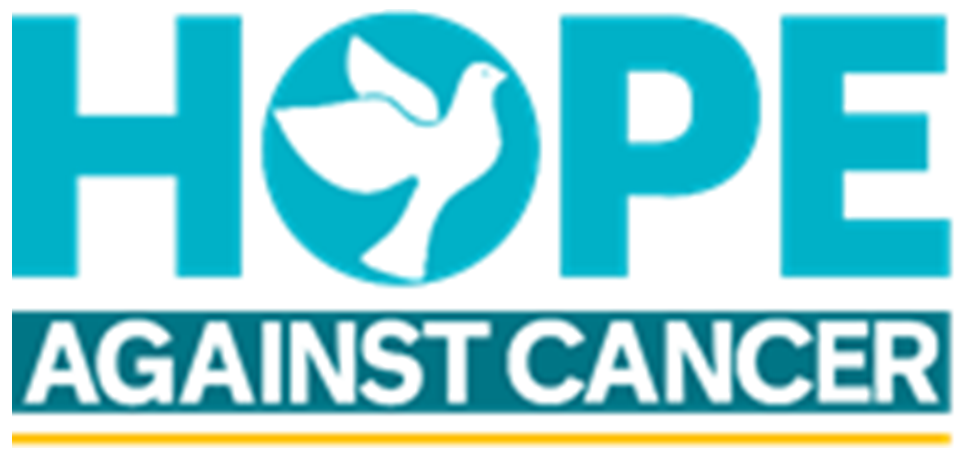Sharing...

SHARING Hope Against Cancer with successful projects and new generations of cancer experts going out into the wider world
Fuelling Scientific Advancement
Sharing results is a fundamental part of science. Peer review, testing and then taking the next steps allows knowledge to develop and grow within the scientific community.
Empowering Global Impact
Here at Hope Against Cancer we consider sharing to be one of our core goals and, in this, we not only consider the sharing of results but, through our funding of PhD students and other researchers the skills grown here in Leicestershire and Rutland positively affect the world.
Cutting-Edge Cancer Research
Recent work conducted at the Hope Cancer Trials Centre has been presented in the presidential symposium at the World Lung Cancer Conference in Singapore, ASCO (American Society of Clinical Oncology) as presentations and posters, ESMO (European Society for Medical Oncology) as presentations and posters.
Leicester clinical researchers are part of high impact practice which is changing clinical research.
Sharing does not just involve research results. An important part of Hope’s sharing philosophy is the support of PhDs and other new researchers. The skills learned in the world-class labs here in Leicestershire and Rutland then go onto work all across the world.
Recent PhD projects supported by Hope funding:
Dr Gethin Thomas (Supervisor Dr H Walter)
Dr Thomas was awarded his PhD in 2023, entitled ‘Studies of Glofitamab, a CD3CD20 bispecific antibody, in B cell malignancies’. He has been appointed to a prestigious post-doctoral position with Roche in Basel, Switzerland and commenced in post October 2023.
Dr Thomas’s work aligns to clinical trials that have been conducted within the Hope Cancer Trials Centre, helping us to understand why some patients benefit from this treatment and others don’t. Findings from this study have led to additional industry funding, two further PhD studentships and are helping to inform further multi-institutional grant applications.
Dr Leanne Herbert (Supervisor Dr Cristina Tufarelli)
Dr Herbert successfully defended her thesis entitled ‘The Relationship Between Repetitive DNA & Radioresponse in Rectal Cancer’ in August 2023, leading to the award of a Doctorate. Dr Herbert has since been successful in her application and recruited to the NHS Clinical Scientist Training Programme in Birmingham.
Dr Herbert’s work has produced exciting laboratory insights into the mechanisms of how rectal cancer cells that are treated with radiotherapy die. Dr Herbert has presented her work at international meetings and Dr Tufarelli presented this work at the Dark Genome Symposium at the Francis Crick Institute.
Dr Alan Dawson
Dr Dawson is currently writing up his PhD. He has made significant contributions to work conducted by Prof Fennell’s laboratory into Mesothelioma. Additional publications are planned for 2024
Our Researchers & Projects
‘Pump Priming’ Projects are a vital part of scientific research. These projects enable researchers to collect pilot data that can be used to support future large-scale applications for external research funding.
Publications resulting from recent Pump Priming Funding
Dr Daniel Fernandez-Garcia and Professor Jacqui Shaw’s award of £10,053 contributed to the following publications:
- ‘Shallow WGS of individual CTCs identifies actionable targets for informing treatment decisions in metastatic breast cancer’. Published in the British Journal of Cancer, 2022
- ‘A Rapid, Shallow Whole Genome Sequencing Workflow Applicable to Limiting Amounts of Cell-Free DNA’. Published in Clinical Chemistry, 2023.
Dr Cristina Tufarelli’s award of £10,000 contributed towards the following publications:
- ‘BRAFV600E-mutated serrated colorectal neoplasia drives transcriptional activation of cholesterol metabolism’. Published in Communications Biology, 2023
- ‘Increased mitochondrial proline metabolism sustains proliferation and survival of colorectal cancer cells’. Published in PLoS One, 2022. (PLoS – Public Library of Science)
Research at the University of Leicester has developed a new technique to help predict the best treatment for individuals with breast cancer.
- 'An optimised patient-derived explant platform for breast cancer reflects clinical responses to chemotherapy and antibody-directed therapy'. Published in Nature Scientific, 2024
- Techniques, such as the one developed by this study, will help doctors to understand the differences between individuals and potentially allow for more informed treatment decisions.
Hope Against Cancer is proud to have helped support this research.




